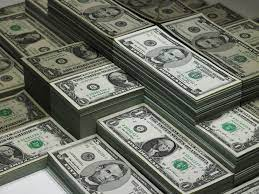A total of $420 million is expected to be sold to Bulk Oil Distribution Companies (BDCs) in the final quarter of 2022 as part of the Bank of Ghana (BoG) Foreign Exchange Forward Auction.
The apex bank introduced the sale of dollars to BDCs some months ago to avert the supply of dollar shortage to the firms and, consequently, fuel scarcity in the country.
According to BoG’s auction calendar, $120 million each will be sold in October 2022, November 2022 and December 2022, respectively.
But, in the month of September 2022, only $60 million will be auctioned.
This is higher than the amount it sold to the BDCs in the 3rd quarter of this year.
The central bank sold a total of $150 million to BDCs in the third quarter of this year in the foreign exchange forex auction.
$50 million were sold in July 2022, August 2022 and September 2022, respectively.
This is done in accordance with the BoG’s foreign exchange forward auction guidelines, where bids are invited as per the prescribed format to purchase United States dollars against Ghana cedis, separately on each auction date.
The Competitive Multiple-priced foreign exchange forward auction is governed by the guidelines published and available on the Bank of Ghana website.
Accordingly, the central bank publishes an auction calendar for the Foreign Exchange Forward Auction on a quarterly basis.
Already, the central bank had taken action against forex bureau operators flouting the foreign exchange law to curb illegal transactions by some operators.
The Ghana cedi lost 16.86% in value to the dollar in the first half of 2022 on the interbank market but over 20% on the retail forex market.
However, the rate of depreciation of the Cedi slowed down in the last two months after stern monetary actions from the Bank of Ghana coupled with some fiscal measures to halt the free fall in the first four months of 2022.
The Ghana cedi was also identified as the worst performing currency worldwide in a currency ranking done by Bloomberg.
The Ghanaian legal tender was placed last among 150 currencies in the world, tracked by their performance since the beginning of the year.
The Sri Lankan rupee came second to the Cedi in the ranking.
For more than seven months, the Cedi has come under intense exchange rate pressure due to its continuous depreciation to major international currencies such as the Dollar, Pound and Euro.



